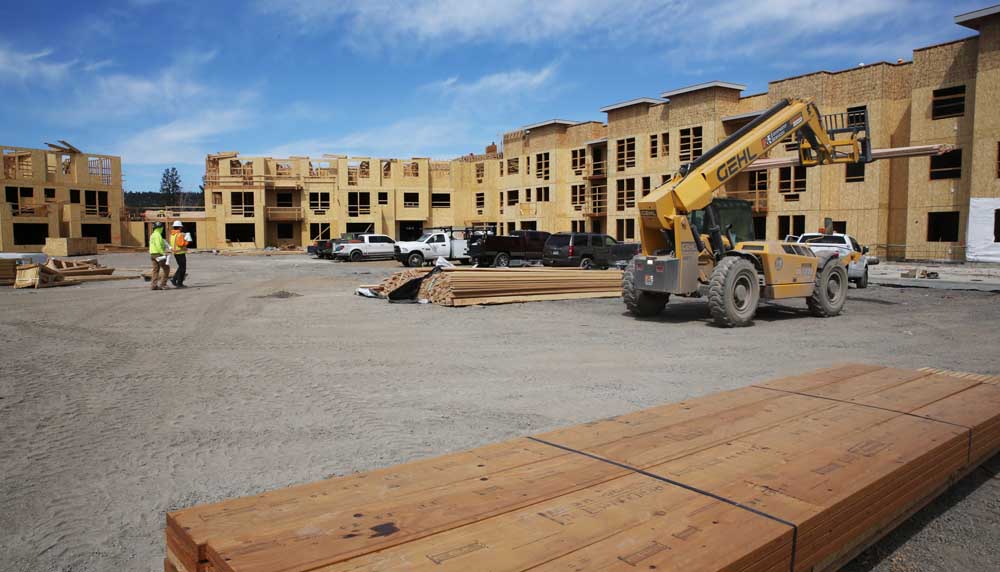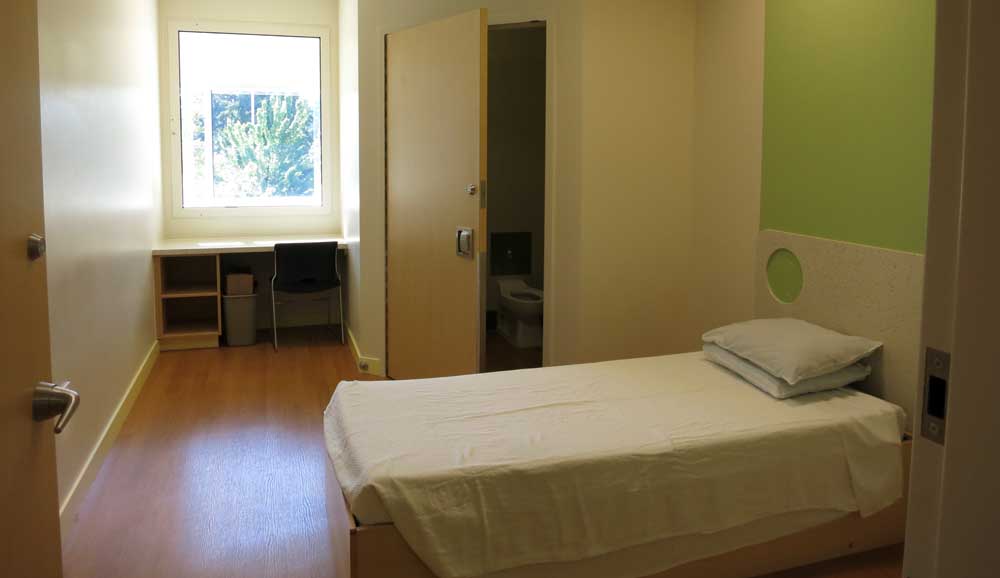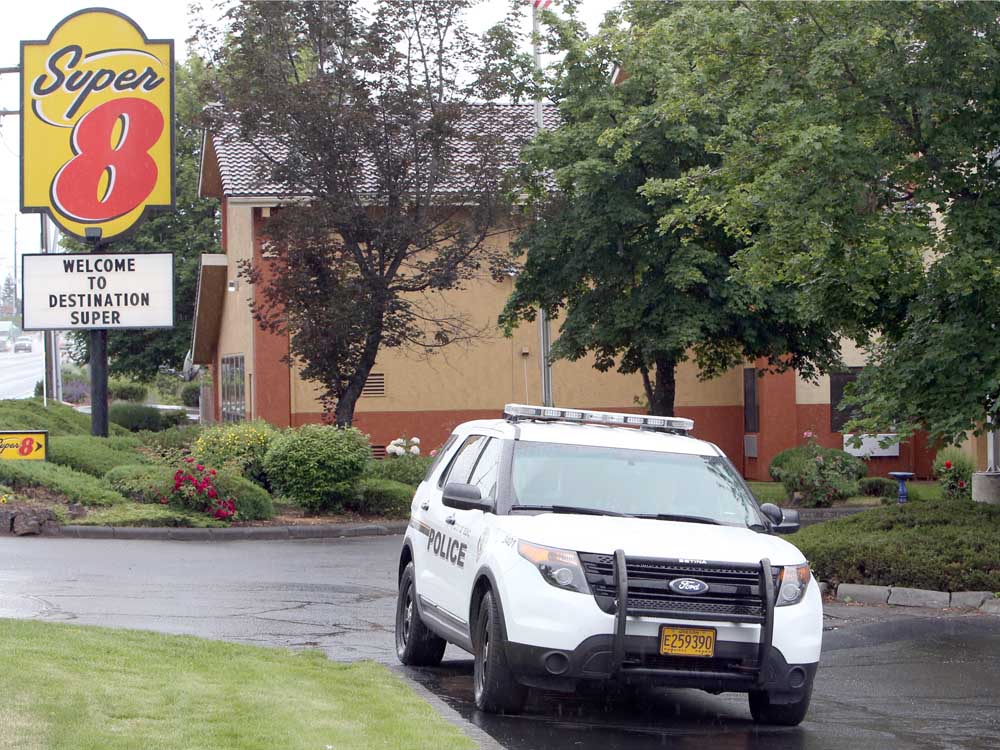Bend City Council approves code changes aimed at increasing housing
Published 2:30 pm Friday, September 17, 2021

- In this April 2021 file photo, construction continues on The Eddy Apartments at SW Shevlin Hixon Drive and SW Bradbury Way in Bend.
After a two-year-long process, Bend has become one of the first Oregon cities to be in compliance with a state law that pushes for the creation of more diverse types of housing.
In a unanimous vote, the Bend City Council on Wednesday preliminarily approved a large set of development code changes aimed at increasing the amount of, and diversity of housing in Bend. A final, official approval is expected from the council next month.
The code changes require that triplexes, duplexes and town homes be allowed in any residential zone where a single-family home is allowed. The package of code changes also lowers parking requirements for developers and includes more stringent regulation of short-term rentals.
These changes were the product of two years of technical work after the state Legislature passed House Bill 2001, which requires cities to make changes like these in an effort to address the state’s affordable housing shortage.
Bend appears to be the first “large” city of over 25,000 in population to become compliant with the law, according to Ethan Stuckmayer, the senior planner of housing programs for the state. Bend’s vote happened a little less than a year before the Legislature’s deadline of June 30, 2022.
“It’s big. This is a historic thing,” Councilor Melanie Kebler said Wednesday. “The state basically told us to right a wrong with this work, and I feel like that’s what we’ve taken a step toward doing. I think we’ve taken a bold step toward reinventing ourselves as a city and trying to accommodate and solve some of the crises we’re in.”
Several codes were tweaked or changed as a result of passing this package, but some of the main changes include requiring no parking for duplexes, triplexes and clusters of cottage homes and a rule that says in a development including multiple units — like a duplex or triplex — only one of the units can legally be a short-term rental.
The code changes also eliminate design standards like landscaping, required storage space, and other features that were previously required. This is because multifamily housing units under House Bill 2001 need to be treated the same as single-family homes, and single-family homes don’t have these requirements.
All of these changes are intended to help chip away at requirements that can add to the cost of development, as well as serve as barriers to getting the development off the ground in the first place.
The package of amendments has drawn mixed reactions. In a public hearing Wednesday, several people representing organizations like Bend’s Affordable Housing Advisory Committee and the Central Oregon Builders Association testified in support of the changes.
“There is no silver bullet to the housing issue in Bend,” said Ian Schmidt, a member of the affordable housing committee. “However, this is one tool of many tools we as a community need to use.”
But the changes also faced some opposition from some residents, who argue there was not enough public involvement in the process. Some also fear that reduced requirements for parking will lead to more cars spilling out into neighborhoods, and that not requiring parking doesn’t make sense in a city that doesn’t have a robust public transit system.
Overall, residents generally questioned whether the code changes will actually make housing affordable.
“Where is the factual information that will show it will actually advance its stated goal to build more housing?” Bend resident Roberta Silverman asked in public testimony Wednesday.
Supporters of the code changes agree that no one thing will fix Central Oregon’s housing affordability, but that it’s at least one tool to help solve the problem.
City staff members also pointed out there have been several presentations and meetings where these codes have been presented and discussed.
At one point, Councilor Barb Campbell suggested increasing the parking requirement for quadplexes from one parking spot per development to two in an effort to address the concerns some residents have about parking. No other councilor supported the motion.








